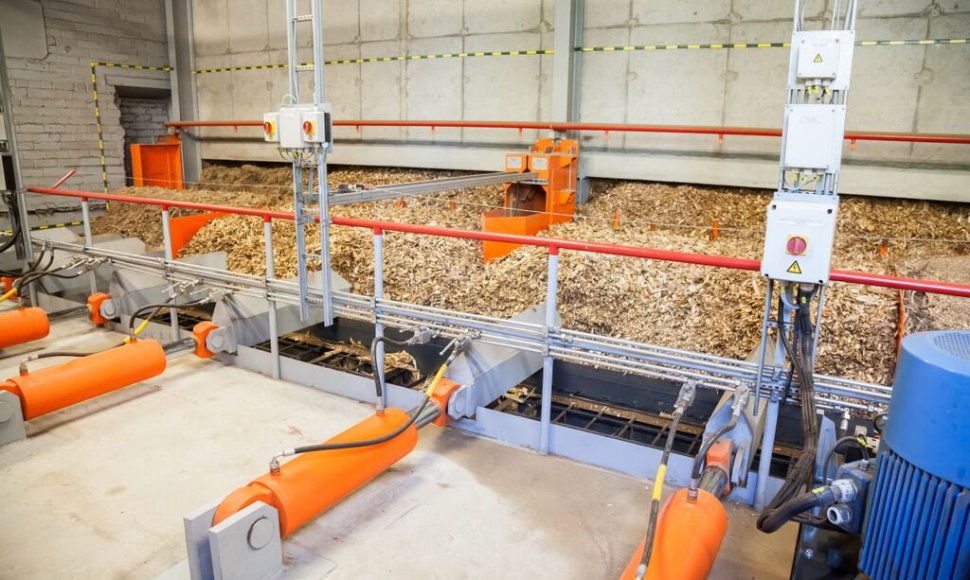Lithuanian Biomass Energy Association LITBIOMA was established in 2004 and is currently comprised of 43 members. Today LITBIOMA represents full chain of Bioenergy sector: producers and suppliers of solid biomass, producers and designers of solid biomass boiler rooms and other equipment, heat suppliers and academic institutions. For 15 years LITBIOMA is actively working towards promotion of wider utilization of renewable energy resources (first of all – biomass) in energy production. At the moment Lithuania is among the top ten EU Member States in terms of renewable energy usage, most of which is biomass: Lithuania has become an example of energy independence and the development of renewable energy for many countries. In 2007, the share of biomass in centralized heat production was only 16 %, today - about 70 %. And in 2020 it is expected to reach 80-85 %.
“Lithuania has already reached the targets of the EU Directive regarding the Incentives for Consumption of Renewable Energy Resources for Lithuania to increase this rate to 23 % until 2020. In 2017 the share of RES in total energy consumption was 25.8 %. Nevertheless, Lithuania is not going to stop. Country has ambitious goals in Lithuania’s National Energy Independence Strategy that by 2030, 45 % of electricity consumption and as much as 90 % of heat energy will be produced from renewable energy sources. Furthermore, all electricity and heat consumed in Lithuania will be produced from renewable and other clean sources by 2050! Despite our high achievement in renewable energy usage we still have a lot of strategic goals, such as the introduction and implementation of the RED II requirements of the Renewable Energy Directive in Lithuania, the successful implementation of the National Energy and Climate Action Plan, and others,” says Virginijus Ramanauskas, president of Association LITBIOMA.
Practically all the cities, towns and bigger villages have now biomass district heating, capable to cover base load and supply heat and hot water. It is very often, that biomass energy covers 100 % of necessary heat (in smaller towns). For example, in Kaunas city (second largest city in Lithuania) ~ 90 % of district heating is covered with biomass – from 2012, when almost all heat demand was covered with natural gas, heating prices dropped 50 %. Biomass price in Lithuania is 3 times lower than natural gas price.
Biomass energy also found its place in industry. Wood processing industry traditionally used to be the “ice-breaker” of the process (what is obvious having in mind the main raw material they have to deal with). Cheap and clean heat and steam from biomass is liked by others, like milk and fish industry, paper and tobacco plants, even chemical industry. ~ 32 % of heat was produced from cheap and local biomass in industrial companies in 2018, it is expected to grow up to 50 % in 2020. This significantly increased compatibility of Lithuanian producers due to cost-effective and clean biomass energy applications in their factories and plants.
Biomass energy sector in Lithuania has grown itself during the last decade. More than 7500 people are employed in technological companies and production and supply of biomass. The export of technological equipment reached 100 M EUR in 2017, but is expected to grow up to 300 M EUR in 2020. The average salary is 50% higher in this sphere of Lithuanian economy, comparing to the average.
As a result, this transition from imported fossil fuel-gas to local biomass offered to Lithuania lower prices of heat to consumers and lower emissions of CO2 (from 1997 until now emissions dropped 60 % in DH sector). Number of jobs increased significantly, and R&D, cooperation of science and business, development of technologies took place in large scale.
“In recent years alone, we have managed to achieve lower VAT rate for biofuels used in private households. The reduced 9 % VAT in the past was applied to district heating, and, therefore, was mostly enjoyed by those living in multi-apartment buildings, but 21% VAT was applied to fuel in private heating – unfairness was created. From 2019 Lithuania reduced VAT rate to 9 % for firewood, wood and straw pellets and briquettes used in private household heating systems. Also, we managed to achieve export credits guarantee found for companies that export their products to higher risk countries, and launched program which will finance old and inefficient solid biomass boiler replacement in private households,” says Vilma Gaubyte, director of Association LITBIOMA.
“Many years LITBIOMA was actively working towards effective and clean private heating sector. Often individual households use old boilers and furnaces consume more solid biomass fuel (firewood in most cases) than it is consumed in DH sector. Average coefficient of efficiency (COE) of the old installations is about 40-45 %. This year Lithuanian ministry of energy launched program which will finance old and inefficient solid biomass boilers replacement to much more efficient pellet boilers in private households. This program will be economically advantageous and add great value to pollution reduction,” says V. Gaubyte.
Biomass energy in Lithuania helped to improve social and economic situation in rural regions, offered solutions for better land use. It also improved foreign trade balance of the state, finally - increased energy independence and environmental situation.












